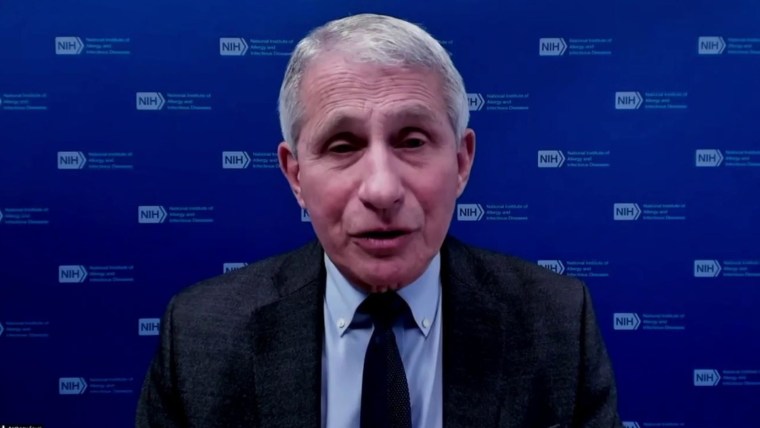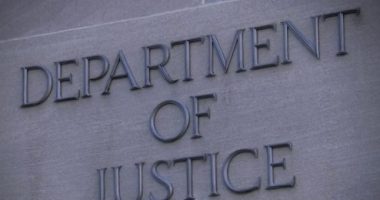Getting both recommended doses of the Covid-19 vaccine is the best way to stay ahead of new mutant variants of the virus — and ultimately end the pandemic, Dr. Anthony Fauci said Monday.
“We feel the optimum approach would be to continue with getting as many people on their first dose as possible,” and that those people go on to get their second dose on time, Fauci, the head of the National Institute of Allergy and Infectious Diseases, said during a White House Covid-19 briefing.
Full coverage of the coronavirus outbreak
The two Covid-19 vaccines available in the U.S., from drugmakers Pfizer-BioNTech and Moderna, are about 95 percent effective when given in two doses, three to four weeks apart. Those dose intervals were studied in clinical trials with tens of thousands of participants.
But a slower than expected nationwide rollout of the vaccine, coupled with the U.K.’s decision to delay second doses, has led some to question why the U.S. does not change its vaccination strategy from the more complicated two-dose regimen to one that simply tries to get as many first doses in American arms as possible.
Experts say, however, that just one dose of the vaccine is unlikely to be enough to stop the pandemic.
“If you have a lesser immune response, which is what you’re getting after that first dose, then you are more likely to wound this virus than kill it,” Dr. Paul Offit, a vaccine researcher at the Children’s Hospital of Philadelphia, said last week during a call with reporters.
If we do not kill the virus, Offit said, then it will still have the opportunity to mutate.
The boost in response from the second dose, Fauci said, gives a “greater breadth of response,” meaning it can protect against not only the “wild type” of coronavirus circulating, but also against the variants that are gaining a foothold in the U.S.
Fauci said that while it’s not unreasonable to consider studying whether we could get away with a single dose, the virus is spreading and mutating faster than any research project would be able to answer that question.
Download the NBC News app for full coverage of the coronavirus outbreak
What’s more, the available vaccines appear to be effective against the variant first identified in the U.K., called B.1.1.7. The Centers for Disease Control and Prevention predicted that variant will become the predominant strain in the U.S. by March.
The U.S. has identified coronavirus variants in 699 cases across the U.S., Dr. Rochelle Walensky, director of the CDC, said during the Monday briefing. In all but nine of those cases, the U.K. variant was identified.
“I’m asking everyone to please keep your guard up,” Walensky said. “The continued proliferation of variants remains of great concern and is a threat that could reverse the recent positive trends we are seeing.”
As of Feb. 6, new cases of Covid-19 had dropped by nearly 20 percent compared to the previous week.
Source: | This article originally belongs to Nbcnews.com



















